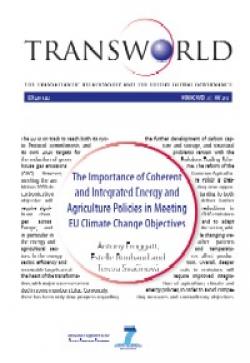The Importance of Coherent and Integrated Energy and Agriculture Policies in Meeting EU Climate Change Objectives
The EU is on track to reach both its Kyoto Protocol commitments and its own 2020 targets for the reduction of greenhouse gas emissions (GHG). However, meeting the ambitious 2050 decarbonisation objective will require significant changes across Europe, and in particular in the energy and agricultural sectors. In the energy sector, efficiency and renewable targets are at the heart of the transformation, with major successes recorded in some member states. Conversely, there has been only slow progress regarding the further development of carbon capture and storage, and structural problems remain with the Emissions Trading Scheme. The reform of the Common Agriculture Policy is creating new opportunities to both deliver further reductions in GHG emissions and to adapt the sector, while changing weather patterns and temperatures affect production. Overall, deeper cuts in emissions will require improved integration of agriculture, climate and energy policies, in order to avoid competing measures and contradictory objectives.
Paper produced within the framework of the IAI project Transworld.
-
Details
Roma, Istituto affari internazionali, 2013, 18 p. -
Issue
25
Introduction
1. EU Climate Policy
2. EU Energy Policy
3. EU Agriculture Policy
3.1 The Context of the CAP Reforms from the Perspective of Environmental Requirements
3.2 The Current CAP Reform, Climate Action and Environment – Is the Farmers’ Cup of Patience Overflowing?
Conclusions
References
Topic
Tag
Related content
-
Publication23/03/2014
The EU, the US and Global Climate Governance
leggi tutto -
Ricerca27/12/2013
Transworld - Redefining the transatlantic relationship and its role in shaping global governance
leggi tutto



